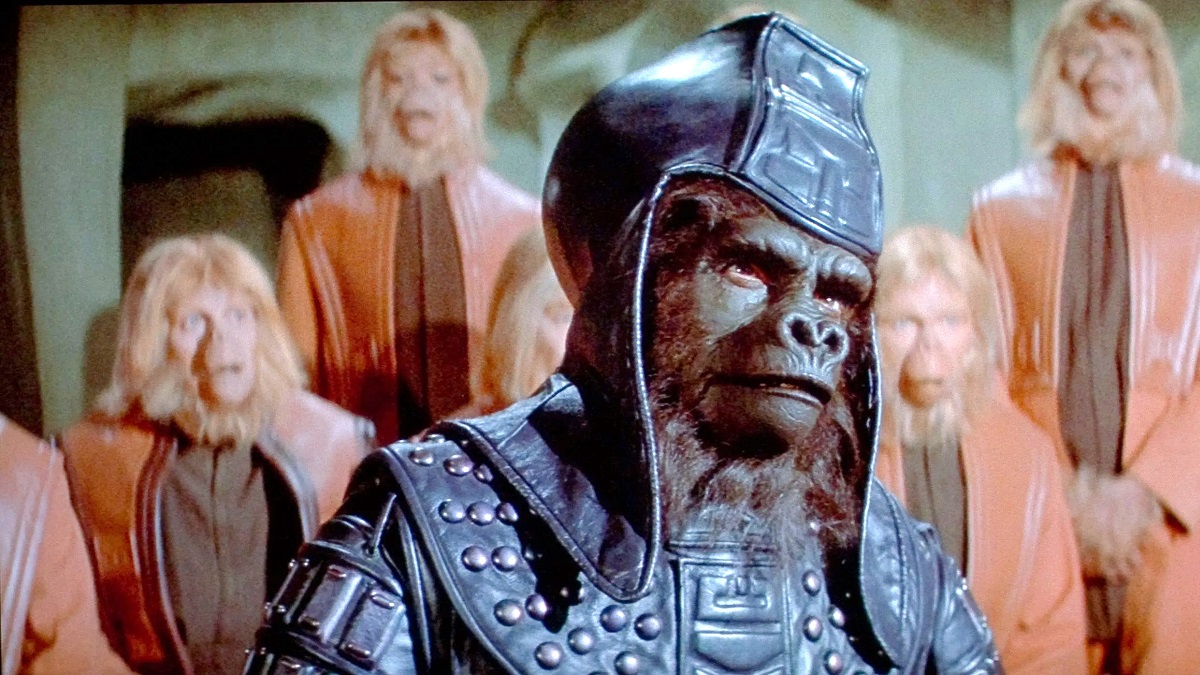
The Planet of the Apes timeline is somewhat confusing, with multiple reboots and remakes coupled with time travel shenanigans, delving into the Planet of the Apes universe can seem like quite a daunting task. Some fans may wonder if it’s even really worth watching every movie in the franchise, especially since the latest movies are working with a new timeline, but to answer that question, yes, it’s worth it; if you’re strong enough.
But where do we even begin? Don’t worry, I’m about to tell you.
Planet of the Apes (1968)
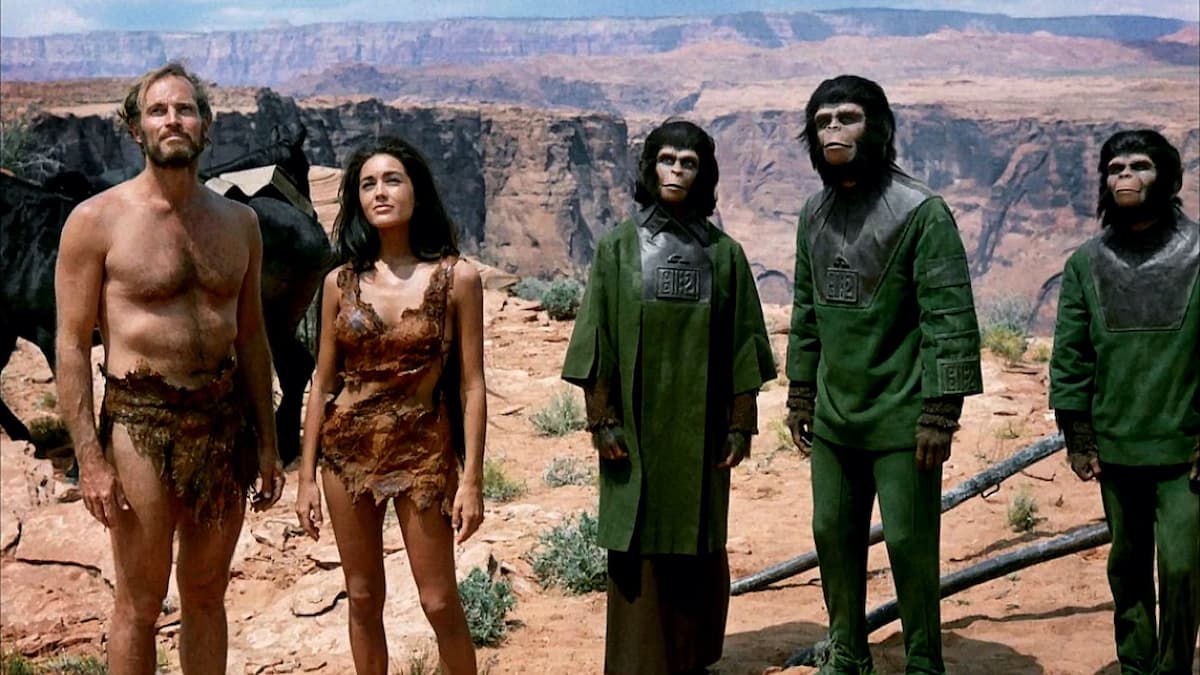
The easiest place to start is the beginning; the beginning of the franchise, and the beginning of the story as a whole. In this film we are introduced to astronaut Taylor, (played by Charlton Heston) and his fellow crew members, Landon and Dodge. The team awakens from their hibernation after a long space voyage only to find themselves on a strange planet populated by advanced apes and primitive, mute humans.
Of course, we all know the shock twist ending; it’s been parodied and recreated to the point that even though most people haven’t actually seen Planet of the Apes, they know how it ends — it’s part of the reason the film has remained popular 55 years after its release. If you don’t know what I’m talking about, maybe you should stop reading now and experience the whole movie blind. Don’t worry, we’ll still be here when you come back.
Beneath the Planet of the Apes (1970)
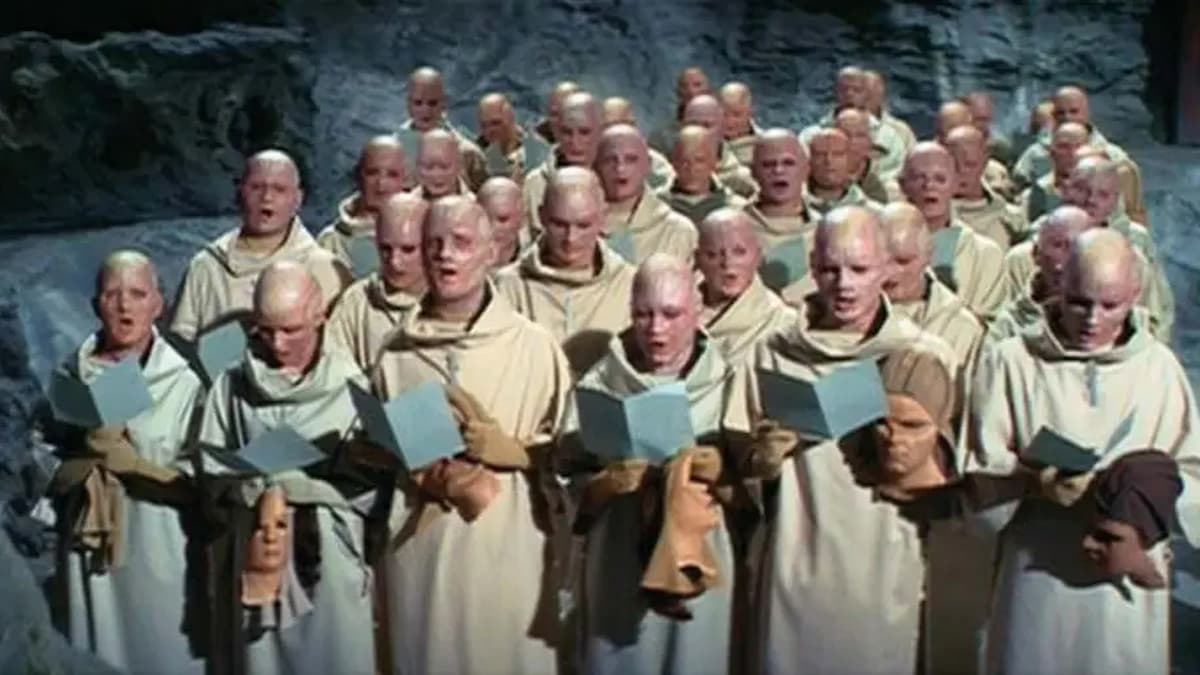
With the success of the first film, a sequel was put into production almost immediately. As most sequels do, it followed on from the events of the first film, Charlton Heston even returned for a small part, but requested that his character be killed off. The follow-up really didn’t fare well with critics, who called it “Hokey and Slapdash,” the general consensus was that Beneath the Planet of the Apes was vastly inferior to its predecessor. It’s definitely weird, to say the least.
The plot takes a pretty weird direction and let’s just say, the ending doesn’t really leave much in the way of options for a sequel. In hindsight, this film really isn’t that bad; it’s a cheesy sci-fi movie that does a good enough job continuing on the story from the first film. But where oh where could they possibly go from here?
Escape from the Planet of the Apes (1971)
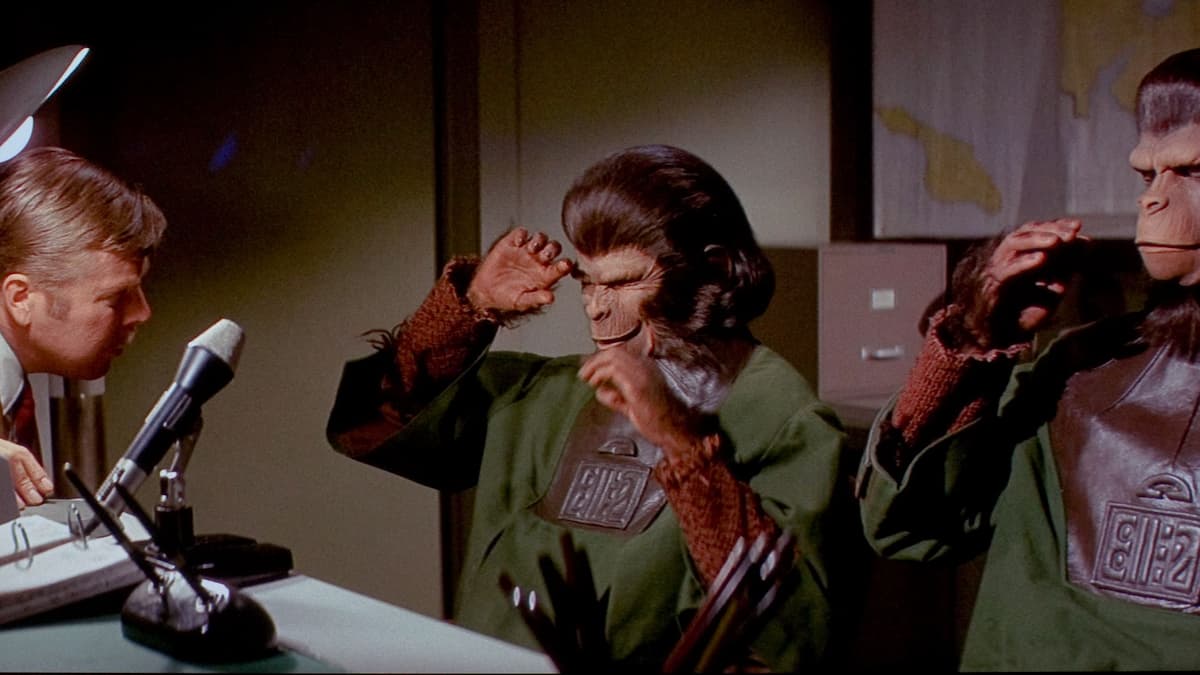
Without spoiling the end of the last movie, it didn’t really leave the writers with anywhere to go with a third movie, so they send a small group of apes from the last movie back in time. It’s a wacky premise that would end up taking that franchise in an entirely new direction, and set off a chain of events leading to a Terminator-like paradox.
We follow Zira, Cornelius, and Dr. Milo as they escape their current time and end up trapped on Earth in 1973 at which time, obviously, apes are not the ruling class yet. The humans, naturally, would like to know how the apes come to rule over humanity in the future, and tensions rise between the two groups. The story ends with the birth of Zira and Cornelius’ son, who we learn more about in the next film.
Conquest of the Planet of the Apes (1972)
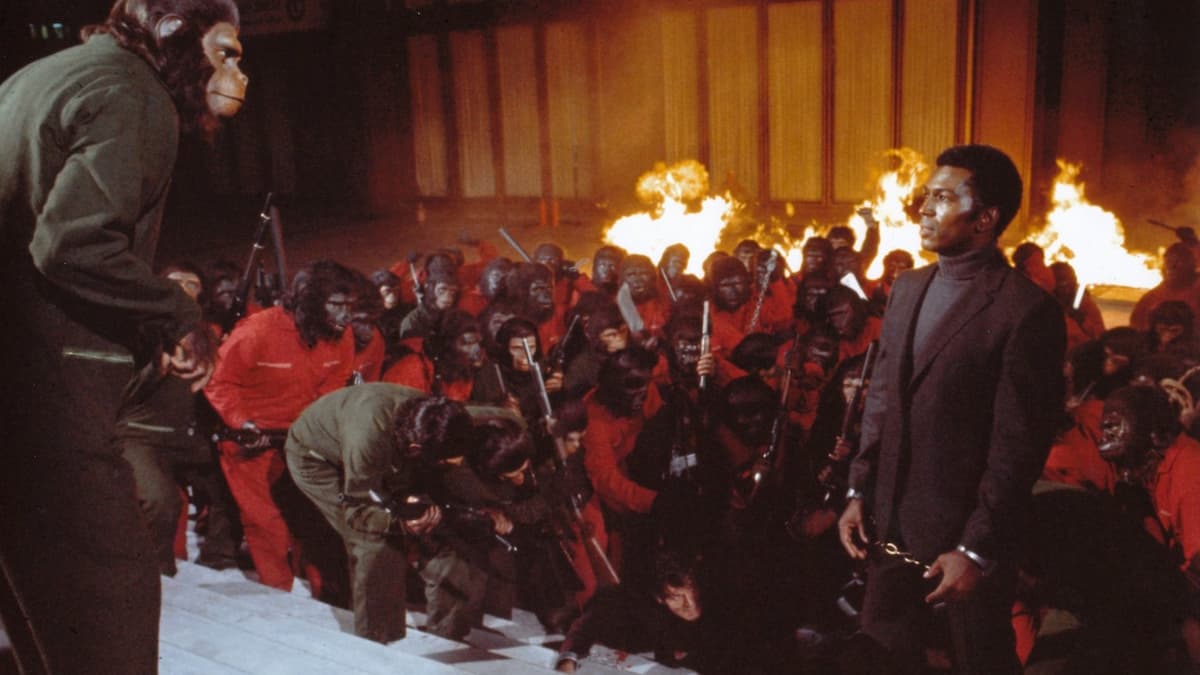
The fourth film in the original run follows the son of Zira and Cornelius, now grown up and called Caesar. It’s now 1983 and gorillas, chimpanzees, and orangutans have been enslaved and are being used for forced labor.
Much like the reboot 40 years later, we see Caesar band together with his fellow apes and lead them into a revolution against their human masters. At this point we see the genesis of the planet of the apes, so in a weird way it’s all started by apes from the future traveling back in time.
Battle for the Planet of the Apes (1973)
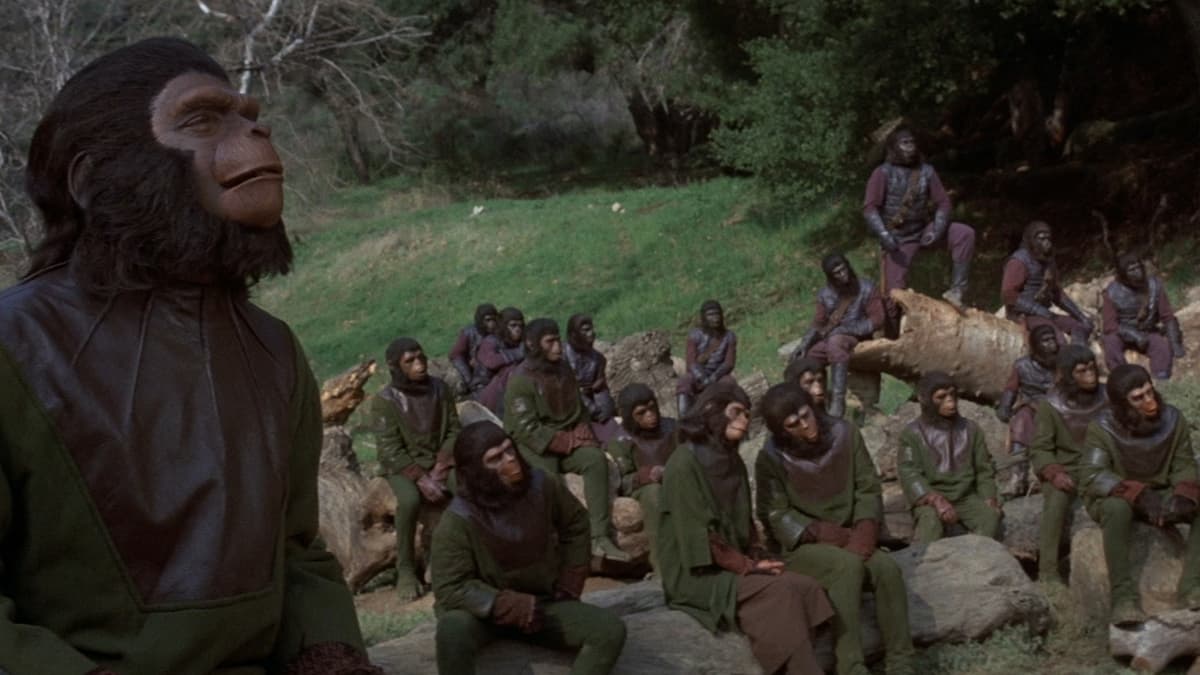
We have one more film in the original quintology. Unfortunately this is the worst-received of the five, mostly thanks to studio 20th Century Fox slashing the budget to the lowest it had ever been. Caesar is now leading the apes and the human followers, after a war has devastated the planet.
Caesar attempts to build a society where humans and apes live alongside each other in harmony, which he ultimately succeeds in. Whether Caesar’s ape and human society is actually a new continuity or just a brief period of peace before everything ends up just like the planet in the first film is up to the audience to determine for themselves.
Planet of the Apes (2001)
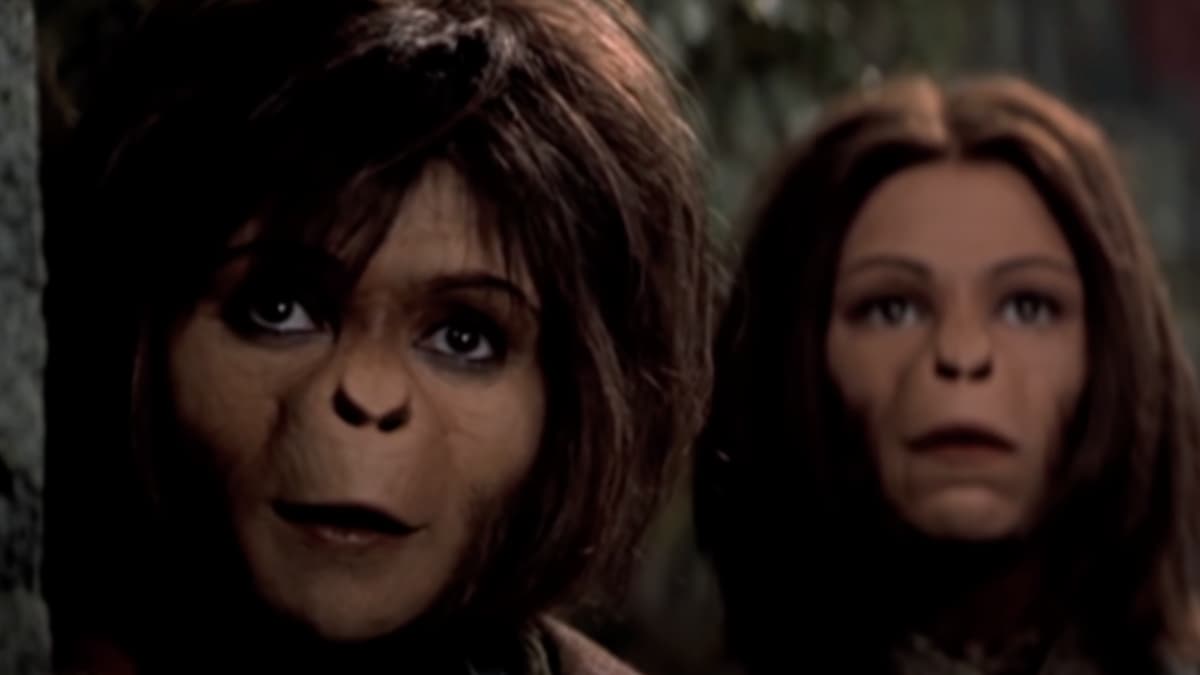
This is a weird one. Being a straight up remake means that you can watch this one at any point and it won’t really affect the viewing experience. It’s pretty close to the story of the 1968 original so watching it shortly after that one makes sense so you can directly compare. You could also watch it after you’ve watched all of the others, although it’s not recommended as even though it is a Tim Burton film, it’s arguably his worst and it will leave a bad taste in your mouth.
In general it’s just a pretty bad re-telling of the story, and the attempt to one-up the plot twist from the first film falls flat. You know how some people mix medicine for their pets in their food? That’s what you need to do here, sandwich this film in between the others and it will go down a bit easier.
Rise of the Planet of the Apes (2011)
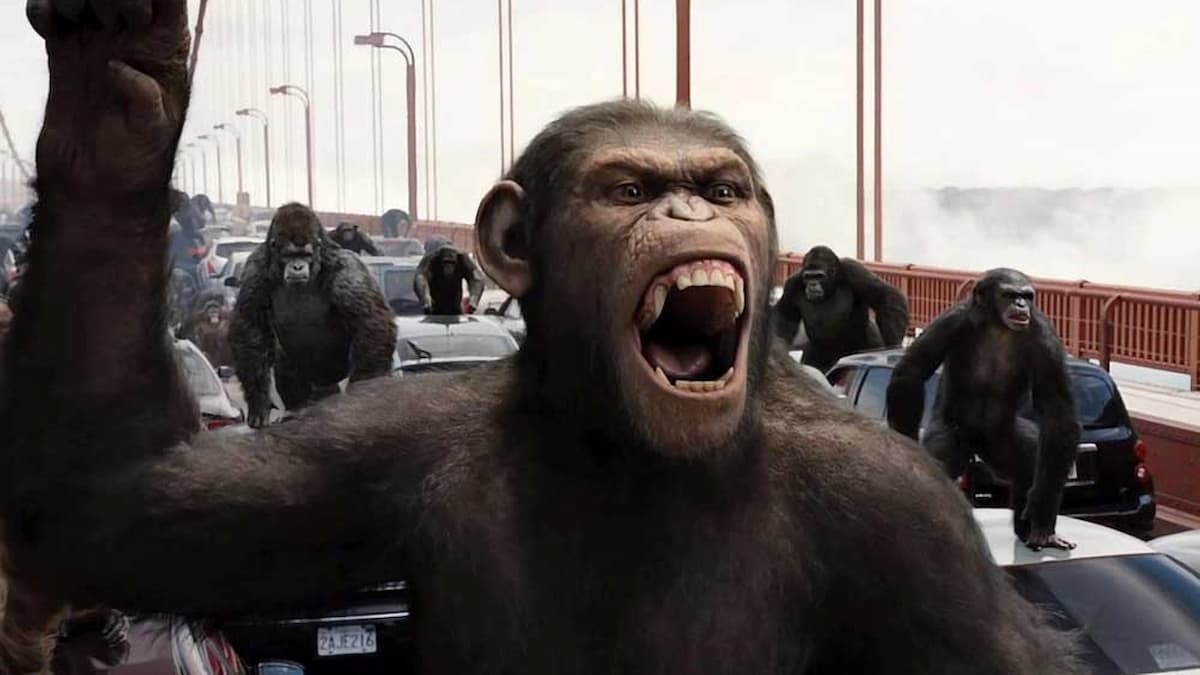
This reboot can be viewed as a prequel to the original film, but it’s probably better to just view Rise and the subsequent films as an entirely new continuity. In this film, we are once again introduced to Caesar, although this time his parents aren’t time traveling, super advanced apes from the future. His mother was a lab monkey, being experimented on in order to find a cure for dementia.
The treatment has the unintended effect of making Caesar incredibly smart, and from here he leads a revolution as his fellow apes rally behind him and escape into the forest. This film marks a technological turning point as well, with the apes being a combination of CGI and motion capture.
Dawn of the Planet of the Apes (2014)
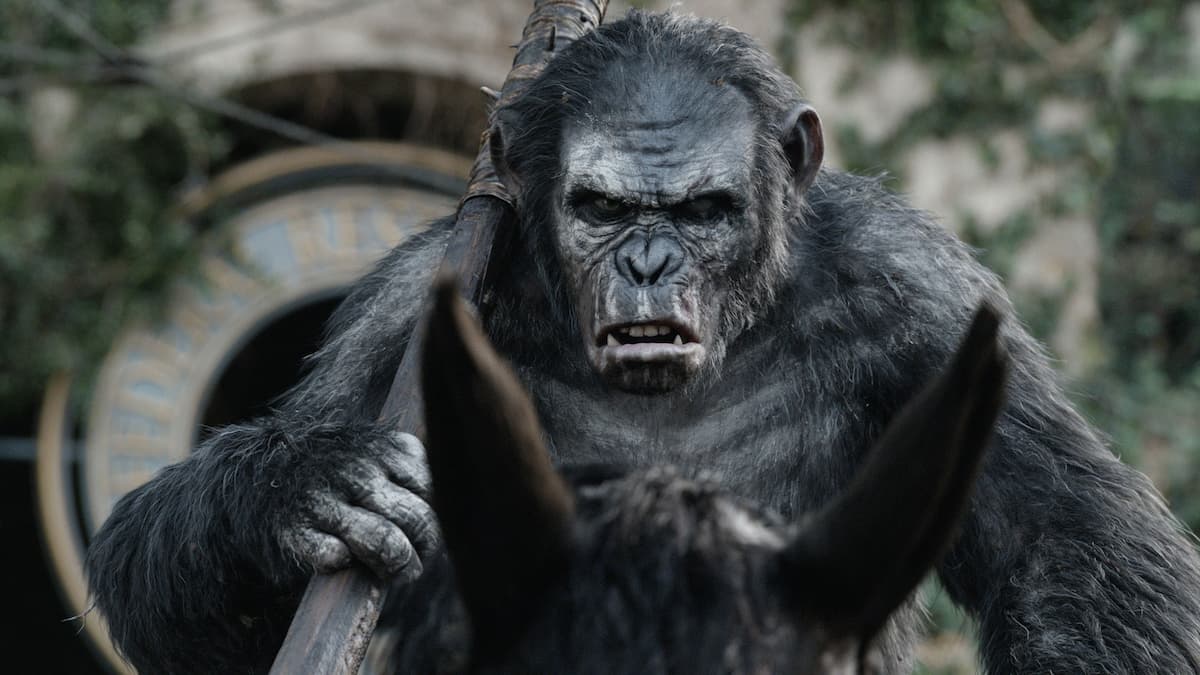
The sequel takes place ten years after the events of the first, with a flu outbreak (known as the Simian flu) having wiped out most of the human population, apes now have an upper hand on humanity, thanks to their immunity to the virus. Of course, the apes come into conflict with human survivors whilst Caesar has to deal with rising tensions within his own group as well.
War for the Planet of the Apes (2017)
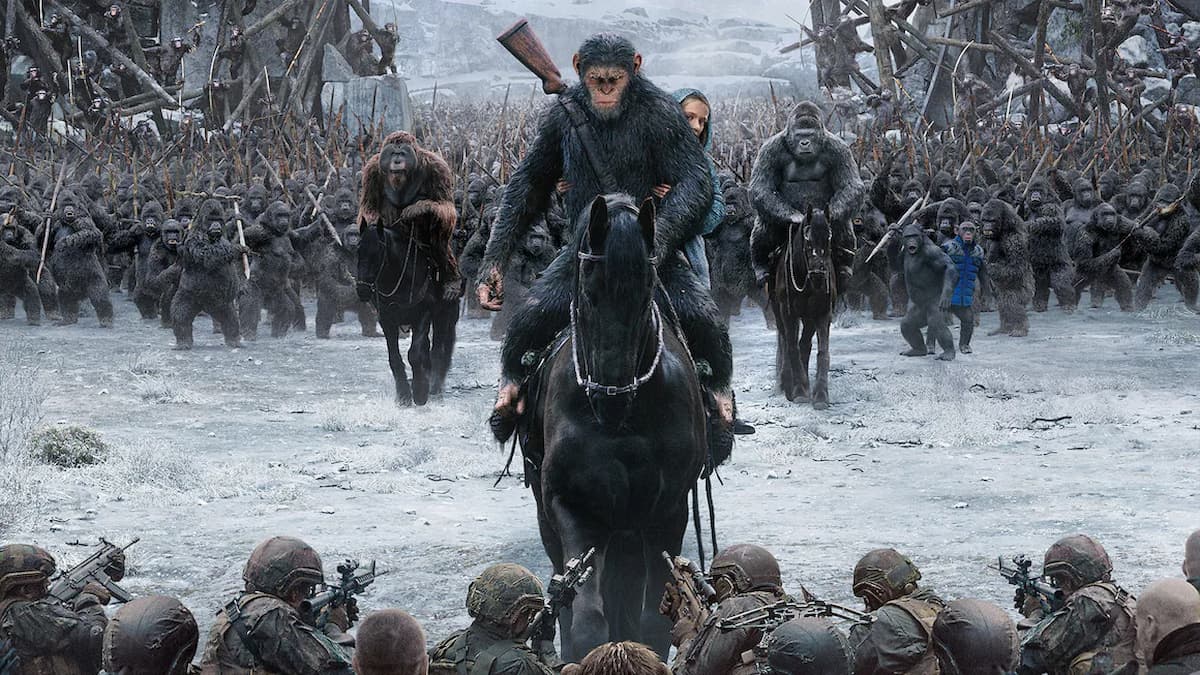
A few years after the events of Dawn, the third film in the reboot continuity carries on the story of Caesar and his group as they once again face off against a human threat. The Simian flu has developed, now resulting in humans becoming mute and less intelligent. We see the struggle between the two sides, with Caesar ultimately leading his group of apes and humans to a new land where they are able to live safe from the threat of humanity.
Kingdom of the Planet of the Apes (2024)
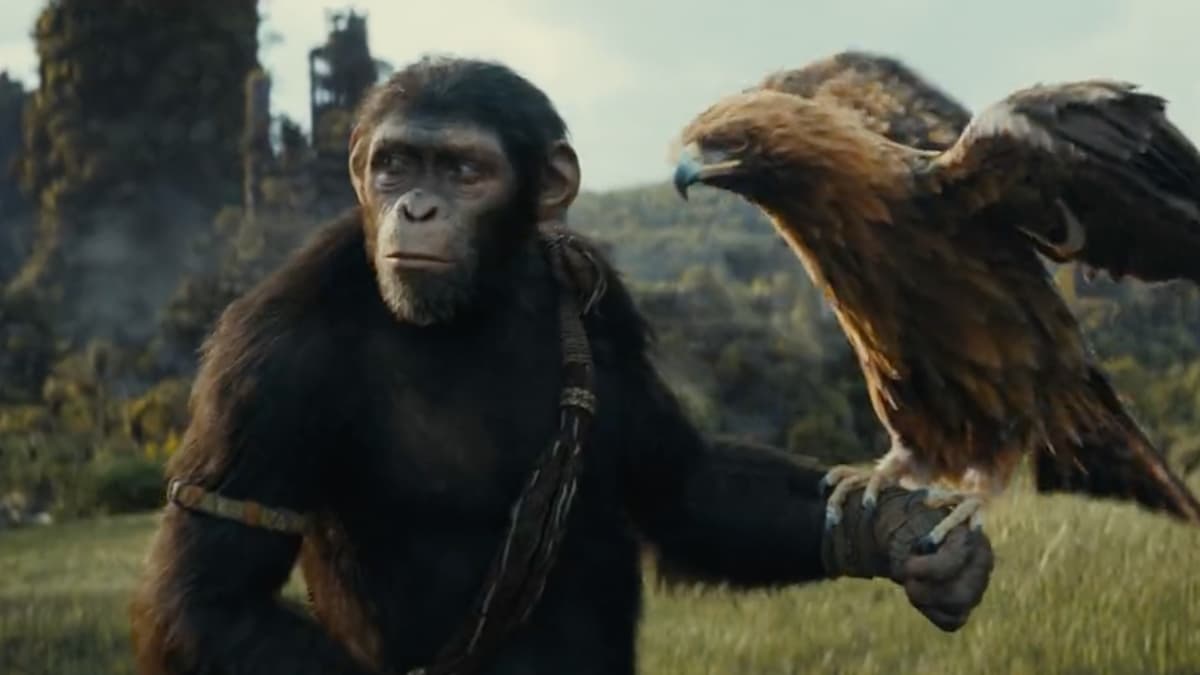
Whilst many thought that War for the Planet of the Apes would be the end of that continuity, we now have a fourth film releasing next year thanks to Disney’s buyout of 20th Century Fox. It looks to be set a long time after Caesar’s time, with all new characters and a much more advanced ape population.
from Movie News | Movie Reviews | Movie Trailers https://ift.tt/CvsHIPb
0 comments: